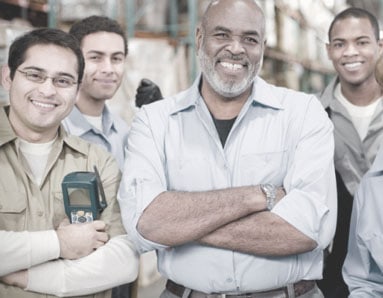The subject of who should be teaching the safe operation of forklifts has always been a hot one. Before the forklift standard (OSHA 29CFR1910.178) was revised in 1998, OSHA was silent on the issue of forklift trainer’s qualifications. The revised standard added section (l)(2)(iii) “All operator training and evaluation shall be conducted by persons who have the knowledge, training, and experience to train powered industrial truck operators and evaluate their competence.” It stills seems a bit vague, but it is much better than nothing. What if we applied these types of criteria to airline pilots and their trainers, would the skies be safe? Would you want your family flying to their vacation destination on a plane with a pilot who was trained by a trainer with very vague qualification requirements? The answer is almost certainly “no” and that is why there are very strict criteria for pilot trainers in aviation.
We should expect professionalism and sufficient levels of experience from forklift trainers in order to produce safe and operational forklift operators. Many people selling forklift trainer’s materials make the argument that no one needs to attend a formal train the trainer class. They say that anyone can be a forklift trainer if they’ve ever driven a forklift or if they have spent any time around them, which is just crazy. OSHA does give some further explanation in the Federal Register which states “An example of a qualified trainer would be a person who, by possession of a recognized degree, certificate, or professional standing, or who by extensive knowledge, training, and experience has demonstrated the ability to train and evaluate powered industrial truck operators.”
We have trained many forklift trainers and usually find that they either come from the operations side of things and have lots of forklift experience, but very little exposure to OSHA/safety issues; or just the opposite, they have come from the safety ranks and have little practical forklift operation experience. The challenge in training forklift trainers is to take both groups and give each of them what they need to succeed. Good quality, up to date materials are important in conducting good forklift training, but the most critical element is the quality of the trainer. The job of a trainer takes a total commitment to quality, patience, enthusiasm, skill, and a high value for the lives of others. The job qualifications closely match those of athletic sports coaches because forklift trainers really are coaches in an industrial setting, imparting knowledge and encouraging their trainees to be the best they can be.
Trainers need to be more than just insert a DVD. Great trainer’s programs assign advance work to the trainees and they make them earn their credentials vs. simply showing up and getting a piece of paper that says they attended. The class should help trainer’s improve their knowledge, teach with passion, identify and fix workplace hazards and remind operators the real reasons they should want to help others work safe.

